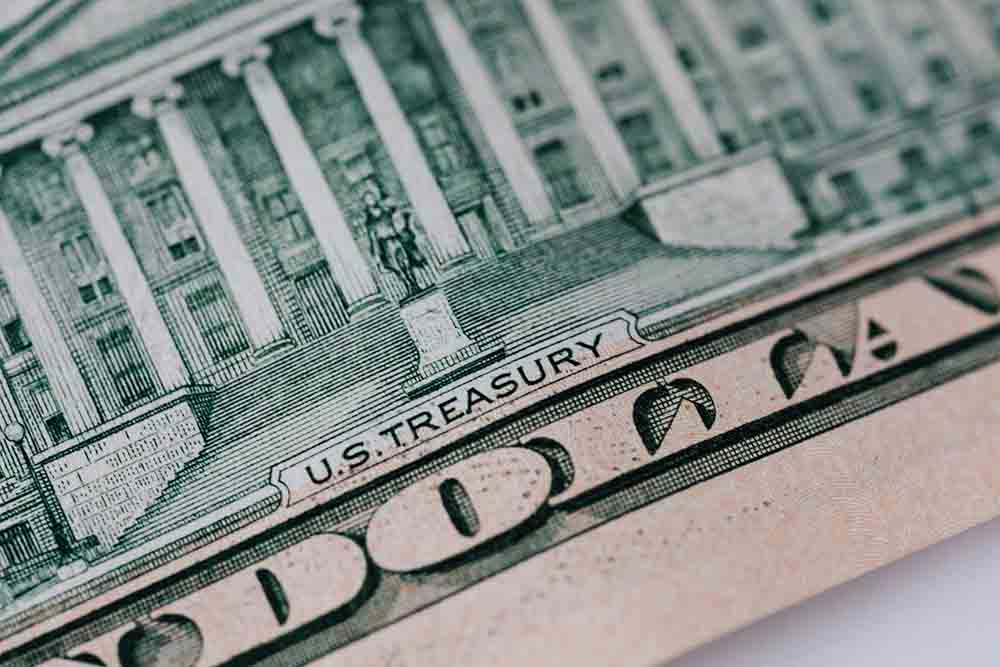Public debt is not a problem; it is the big idea behind modern monetary theory (MMT). The current economic crisis has allowed MMT to gain influence among the political class. Among the people who developed President Joe Biden’s economic program is Stephanie Kelton. She is a former economic adviser to Bernie Sanders and one of MMT’s promoters. We can already see the first step of this theory’s application with the $1.9 trillion stimulus package Biden announced in January. The financing of the Green New Deal also appears to follow the principles of MMT. Formerly supported only by Rep. Alexandria Ocasio-Cortez, this ecological program is now an essential subject for the new administration, which wants to invest $2 trillion. This theory is now coming to Canada, as the Bank of Canada buys up the government’s debt. At first, MMT may seem attractive, but the effects of its application would weaken the economy instead of strengthening it.
MMT, Public Expenditures and Debt
As Thomas Palley writes in a working paper for the Forum for Macroeconomics and Macroeconomic Policies, MMT considers that “sovereign currency-issuing governments are financially unconstrained and do not need taxes or bonds to finance their spending. That is because such governments can always pay by ‘printing’ money.” Accordingly, the government deficit is not a problem because the central bank can always print more money to pay its bills and service its debts. Moreover, under MMT, the government can and must engage in massive spending to help grow the economy, enrich the private sector and finance effective programs such as universal health care, free college tuition and green energy.
The main problem is that under MMT, the economy will be more controlled by the government, which will try to be independent of the private sector for its expenditures. As Steven Globerman of the Fraser Institute states: “MMT advocates call on governments to bypass private capital markets and sell their bonds directly to the central bank, not just in times of economic emergency, but as an ongoing strategy to fund government spending.” This situation will lead to the central bank’s increasing power over political decisions and the economy. And it has begun: it is expected that the Bank of Canada will control 56 per cent of Canada’s government bond market by the end of 2021.
The Economy’s Dangerous Temptation under the Government’s Umbrella
MMT would lead to putting the economy under government control (and that of the central bank). This appears to be dangerous for many reasons.
The increased role of central banks will make them a political tool. Their decisions will likely please the government, leading to high inflation. The examples of Venezuela and Zimbabwe have shown how the economic situation can become disastrous when the central bank and the government spend without caring about the budget. The illusion of free money leads to neglect of financial mechanisms. MMT supporters propose fiscal policies to fight inflation, but it would be perilous politically to raise taxes in a period of inflation when prices are already rising.
Moreover, too much state intervention would lead to cronyism. As the government would choose which sector will receive investments, enterprises would be tempted to mix as closely as possible into politics for financial and political advantages. The economy would become more dependent on the state, leading to increased political control.
Finally, under MMT taxes are a political tool. MMT holds that one of the essential purposes taxes serve is to “discourage negative activity like smoking and carbon emissions,” according to Kelton. Indeed, with MMT, taxes are not used to fund public services but to change the population’s habits. The state would decide what is right and acceptable for people and what is not.
The Government Must Understand its Limits
Many difficulties and mistakes have been brought to light with the government and public authorities managing the COVID-19 crisis. The public sector has to accept that it cannot intervene in economic sectors if it already has grave problems resolving a health crisis. MMT might appear attractive at first glance, but its implementation would not help the economy.
Alexandre Massaux is a research associate with the Frontier Centre for Public Policy.
Photo by Karolina Grabowska from Pexels.



